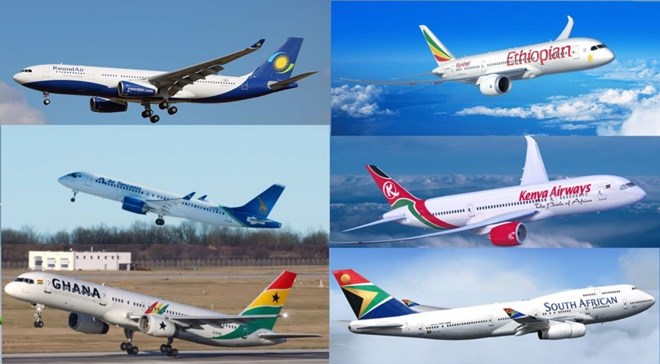
Thursday November 21, 2024

Mogadishu (HOL) — The International Air Transport Association (IATA) has reported that $950 million in airline revenues remain blocked across African countries, representing 57% of all global aviation funds trapped due to foreign exchange shortages. IATA Director-General Willie Walsh shared these concerns during the African Airlines Association’s Annual General Assembly in Cairo, calling for immediate action to address the crisis.
“If airlines cannot repatriate their revenues, they cannot sustain service. Economies will suffer if connectivity collapses,” Walsh said.
Nigeria, previously the largest contributor to the crisis, had blocked $850 million in airline funds by mid-2023 due to restrictive currency policies. This forced major carriers, including Emirates, to suspend operations in 2022. However, recent efforts have resolved 98% of the issue in Nigeria, according to IATA.
Elsewhere, African countries using the Central and West African CFA Francs hold over $300 million in trapped airline funds, creating severe operational challenges. Many airlines have reduced flights or ceased services in these regions, impacting connectivity and local economies.
Walsh highlighted additional hurdles facing Africa’s aviation sector, including high operational costs, inadequate airport infrastructure, and safety concerns. The continent, home to 18% of the global population, accounts for just 3% of global GDP and only 2% of worldwide air transport.
While Africa has made safety improvements, Walsh urged greater adoption of the IATA Operational Safety Audit (IOSA) registry to enhance efficiency and reliability. “Airlines on the IOSA registry outperform their peers globally. Africa has made progress, but more work remains,” he said.
Progress has been made, with Africa’s total blocked funds decreasing by 28% since December 2023. Walsh stressed the need for collaboration among airlines, governments, and international organizations to resolve the issue fully. He also called on African airlines to contribute to the Global Aviation Data Management (GADM) initiative to strengthen safety standards.
“Smoother repatriation of funds is essential not just for airlines but for the economies they support,” Walsh concluded.

